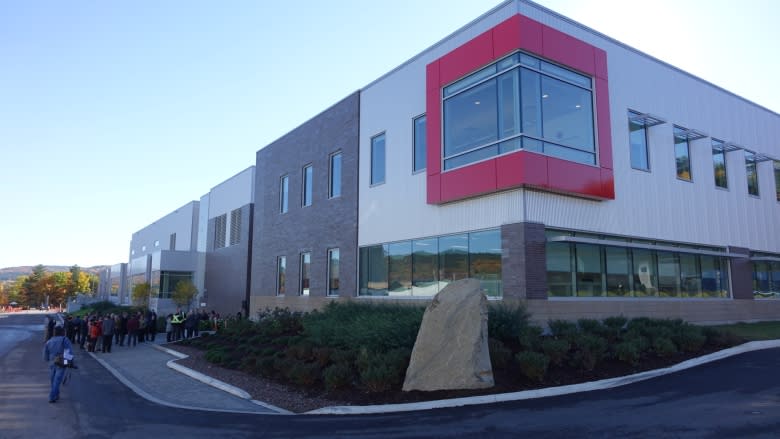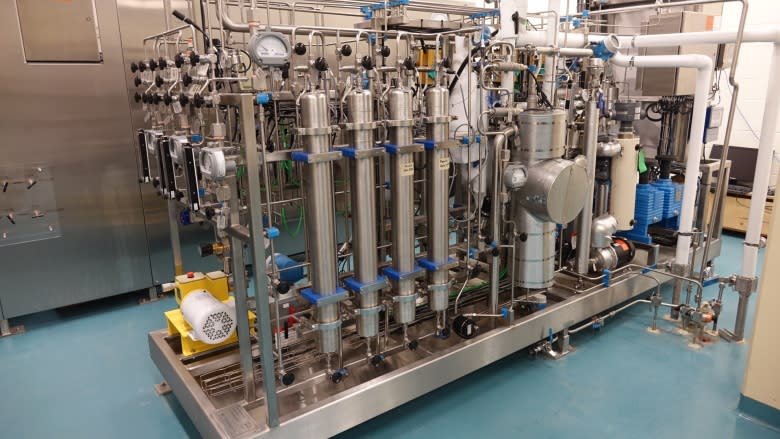$113M nuclear research lab opens doors in Chalk River, Ont.
The aging nuclear research facility in Chalk River, Ont., got a significant update Wednesday with the official opening of a state-of-the-art, $113-million laboratory.
At a ribbon cutting ceremony Wednesday Natural Resources Minister Jim Carr said the new lab will contribute to the revitalization of the Chalk River facility.
"As we open this nuclear research facility, we're helping to ensure that this campus remains the cornerstone for nuclear innovation in Canada," said Carr.
Atomic Energy Limited Canada (AECL), which owns the Chalk River facility 190 kilometres northwest of Ottawa, contracted Canadian Nuclear Laboratories (CNL) to build and operate the new laboratory.
The building will house 85 scientists and engineers who will focus on materials and processes in the field of nuclear energy.
Carr said given Canada's commitment to reducing carbon emissions and combating climate change, there's a need to bolster the nuclear energy technology sector.
"Chalk River is critical to advancing all of these priorities," said Carr.
'There was a bit of a dip'
Opened in 1944, the Chalk River nuclear facility has been the subject of controversy in recent years over its aging equipment.
In 2007, an unscheduled shutdown of the facility's nuclear reactor led to a worldwide shortage of medical isotopes.
Mark Lesinski, president and CEO of CNL, said Wednesday the new addition comes at an important time for Chalk River.
"We've talked about how this facility has been world class for many years, and there was a bit of a dip, and we didn't have as much investment," said Lesinski. "But with this kind of support, and this kind of delivery, we will get there. Things are changing."
Named after pioneering researcher
While only one laboratory in the building was set up as of Wednesday, CNL expects all 10 labs to be fully operational by March 2018.
According to AECL the new lab was built on budget and on schedule.
The building has been named in honour of Harriet Brooks, a pioneering nuclear researcher who died in 1933. The Exeter, Ont., native and McGill University graduate was the first woman to study at the Cavendish Laboratory in Cambridge, England.
Part of her work in transmutation of elements laid the foundation for understanding radioactivity.




